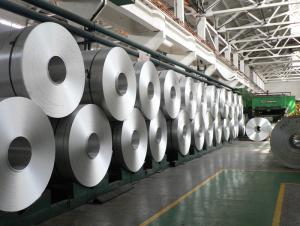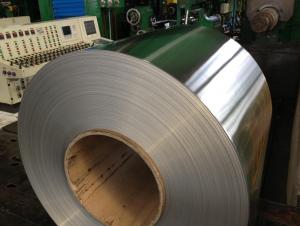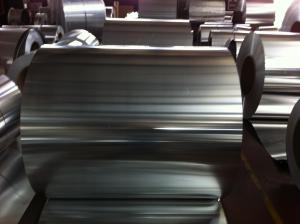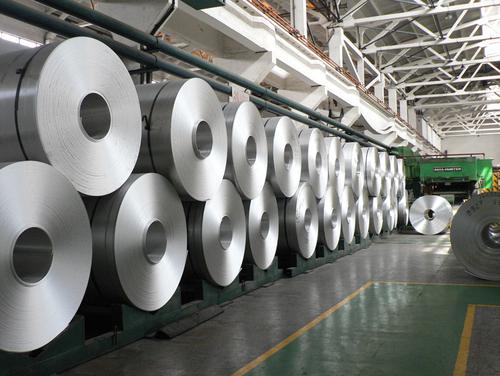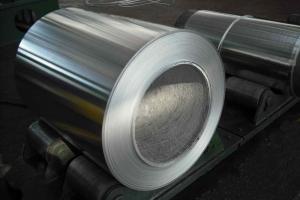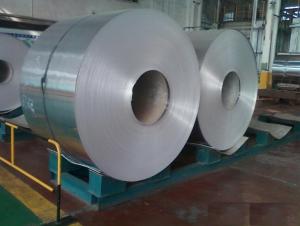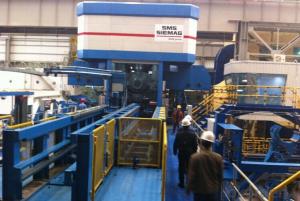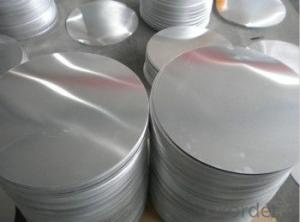Alcoa Aluminum Coils - Continuous Casting Aluminium Foil Stock in Coil AA8079
- Loading Port:
- China Main Port
- Payment Terms:
- TT or LC
- Min Order Qty:
- -
- Supply Capability:
- -
OKorder Service Pledge
OKorder Financial Service
You Might Also Like
1.Structure of Product Description
Continuous Casting Aluminium foil stock is one semi-finished aluminium material. This strip can be rolled down to all kinds of aluminium foil The alloy AA8079 is widly used in household aluminium foils. Because its price is much more competitive than other alloy, So many customers choosed aluminium material instead of AA3003.
2. Main features of the product
a.Competitive price---We have our own mills and can produce mill finished aluminium coils, so we can control the production cost better.
b.Professional after-sale service---We have more than 15 years exportation experience and you need not worry about the exporation problems.
c.Fast delivery time---We can control the delivery time within 35 days.
3. Image
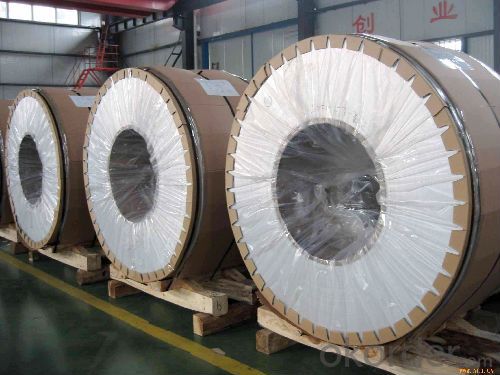
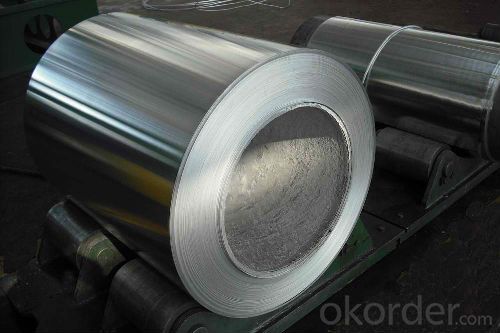
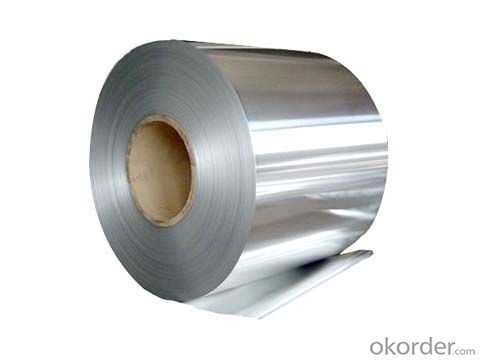
4. Products Specification
| Alloy | Temper | Final Thickness | Final Usage | Coil ID |
| AA8079 | H14 | about 50 micron | Household | 76mm or 152mm |
5.FAQ
What is the quality standard?
---Usually our standard is GB3880-2006
What is the largest width?
---It is 2300mm
What is the MOQ?
---Usually we can accept 80 tons.
- Q: Can aluminum material be utilized as a baking surface for bread?
- <p>Aluminum coils are not typically used for baking bread. While aluminum is a good conductor of heat and is used in baking sheets and muffin tins, it's usually in a flat, solid form. Aluminum coils, often used for industrial purposes like heat exchangers, are not designed for direct food contact. For baking bread, it's best to use materials specifically designed for baking, such as silicone mats, parchment paper, or non-stick baking sheets. These materials are safe for food contact and can withstand the high temperatures required for baking bread.</p>
- Q: What is the typical price gap between purchasing new aluminum coils versus used ones?
- <p>The price difference between new and used aluminum coils can vary significantly based on factors such as the quality of the used coils, market demand, and the specific grade of aluminum. On average, used aluminum coils can be 20-50% cheaper than new ones. However, this is a broad estimate and actual prices can fluctuate. It's essential to check current market prices and consider the condition of the used coils before making a purchase decision.</p>
- Q: What is the typical elongation of aluminum coils?
- The typical elongation of aluminum coils can vary depending on the specific alloy and manufacturing process, but it generally ranges from 5% to 30%.
- Q: If this is true then how do I take my aluminums temperature without fear of breaking the themometer and get mercury all over it?
- Butting any metal against any other with an electrolyte can cause electron exchange and corrosion. (Liquid mercury is its own electrolyte.)There are alternatives such as thermocouples that only have a ceramic in contact with the aluminum.
- Q: Can aluminum coils be used in telecommunications infrastructure?
- Telecommunications infrastructure can employ aluminum coils as they possess several advantages. Firstly, aluminum, being a lightweight and durable material, finds extensive use in various industries, including telecommunications. Its cost-effectiveness, when compared to metals like copper, makes it a preferred choice for many companies in this sector. Moreover, the lighter weight of aluminum coils facilitates easier handling and installation, resulting in reduced labor and transportation costs. Additionally, aluminum's excellent electrical conductivity makes it suitable for transmitting data signals in telecommunications networks. By effectively carrying electrical current, aluminum coils ensure efficient data transmission without compromising quality. Consequently, reliable and high-speed communication over long distances becomes possible. Another advantage of incorporating aluminum coils in telecommunications infrastructure lies in their resistance to corrosion. When exposed to air, aluminum naturally forms a protective oxide layer, preventing rusting and corrosion. This resistance enhances the longevity and durability of the infrastructure, thereby reducing maintenance and replacement expenses over time. Nevertheless, it is crucial to acknowledge that aluminum possesses lower tensile strength than copper. Therefore, the infrastructure's structural integrity must be adequately considered and engineered when employing aluminum coils. Additionally, specific connectors and compatible hardware may be necessary. In conclusion, the use of aluminum coils in telecommunications infrastructure is highly effective due to their cost-effectiveness, lightweight nature, electrical conductivity, and corrosion resistance. Proper planning and design are imperative to ensure the successful implementation of aluminum coils in telecommunications networks.
- Q: How are aluminum coils priced in the market?
- Aluminum coils are typically priced in the market based on factors such as the current market demand and supply, the cost of raw materials, production and manufacturing costs, transportation costs, and any additional factors that may affect the overall pricing.
- Q: I did a activity series lab and on my data table, it shows that lead reacted more than aluminum did, but aluminum is more active than lead. So, why does it show that lead is more active when it really isn't? Is it human error?
- Aluminum is more active than lead. You should double check your activity data table. If you confirm that the table says that lead is more active than aluminum, the table is in error.
- Q: What are the different surface textures available for aluminum coils?
- Aluminum coils offer a range of surface textures, each with its own distinctive qualities and uses. 1. Smooth: The smooth surface texture is a popular and versatile option for aluminum coils. It boasts a sleek and polished appearance, making it suitable for a wide array of applications, including architectural cladding, signage, and consumer electronics. 2. Stucco: Stucco texture involves embossing the aluminum coil to create a raised pattern reminiscent of small pebbles. This texture enhances the coil's durability, offering resistance against scratches and dents. It is often chosen for applications that require a robust and decorative finish, such as roofing, wall panels, and decorative trim. 3. Diamond: The diamond texture features an embossed diamond-shaped pattern on the aluminum coil's surface. This texture not only adds visual appeal but also provides enhanced traction and slip resistance, making it ideal for flooring, stairs, and ramps. 4. Brushed: The brushed texture is achieved by mechanically brushing the surface of the aluminum coil, resulting in a linear pattern. This finish gives the aluminum a distinctive satin-like appearance, making it sought after for architectural applications like interior wall cladding, furniture, and decorative elements. 5. Hammered: To create the hammered texture, the aluminum coil's surface is hammered, producing a unique and irregular pattern. This texture lends a rustic and handcrafted look, making it suitable for decorative accents, light fixtures, and furniture. 6. Perforated: The perforated texture involves puncturing small holes or perforations into the surface of the aluminum coil. This texture allows for increased airflow, light transmission, and sound absorption, making it commonly used in ventilation systems, acoustic panels, and decorative screens. These examples illustrate the various surface textures available for aluminum coils. The choice of texture depends on specific application requirements, including aesthetics, functionality, and durability.
- Q: Can aluminum coils be used in electrical applications?
- Yes, aluminum coils can be used in electrical applications. Aluminum is often used as a conductor in electrical wiring due to its high conductivity and low cost compared to copper. Aluminum coils are commonly used in transformers, motors, generators, and other electrical equipment. However, it is important to note that aluminum has a lower electrical conductivity than copper, so larger aluminum coils may be required to achieve the same level of conductivity. Additionally, aluminum coils may require special insulation and connectors to prevent corrosion and ensure proper electrical connections.
- Q: Can aluminum coils be used in the production of automotive parts?
- Indeed, automotive parts can be produced using aluminum coils. As a lightweight and highly malleable metal, aluminum is an excellent choice for manufacturing various components in the automotive industry. Body panels, hoods, fenders, doors, and even engine parts can all be fabricated using aluminum coils. The utilization of aluminum in this sector presents several benefits, such as enhanced fuel efficiency, superior performance, and reduced vehicle weight. Furthermore, aluminum coils are easily manipulable and can be shaped into intricate forms, allowing for greater design adaptability in the manufacturing of automotive parts. In conclusion, the use of aluminum coils has become increasingly popular in recent years and is now a common practice in the production of automotive components.
Send your message to us
Alcoa Aluminum Coils - Continuous Casting Aluminium Foil Stock in Coil AA8079
- Loading Port:
- China Main Port
- Payment Terms:
- TT or LC
- Min Order Qty:
- -
- Supply Capability:
- -
OKorder Service Pledge
OKorder Financial Service
Similar products
Hot products
Hot Searches
Related keywords
